The world last week: Promoting science and responsibility
(Baonghean) - The US Food and Drug Administration (FDA) has just tightened regulations to ensure the quality of antibody test kits, in the context that a series of unprofessional manufacturers have entered the business, creating the risk of poor quality test kits on the market. In Germany, Chancellor Angela Merkel has announced plans to partially lift the blockade, but still maintain a cautious attitude; and Germany's response to Covid-19 is receiving much admiration. These are notable international issues of the past week.
Unscrupulousness reigns supreme
The Covid-19 pandemic is still raging across the United States - the country most heavily affected with the highest number of infections and deaths in the world. However, as the demand for antibody testing increases to serve the reopening of the US, a series of unprofessional distributors and brokers in the antibody testing business have entered this market. The consequences are huge, the biggest risk being that poor quality test kits are sold, giving false results, leading to the possibility of people returning to the community, while not knowing that they are endangering themselves and others.
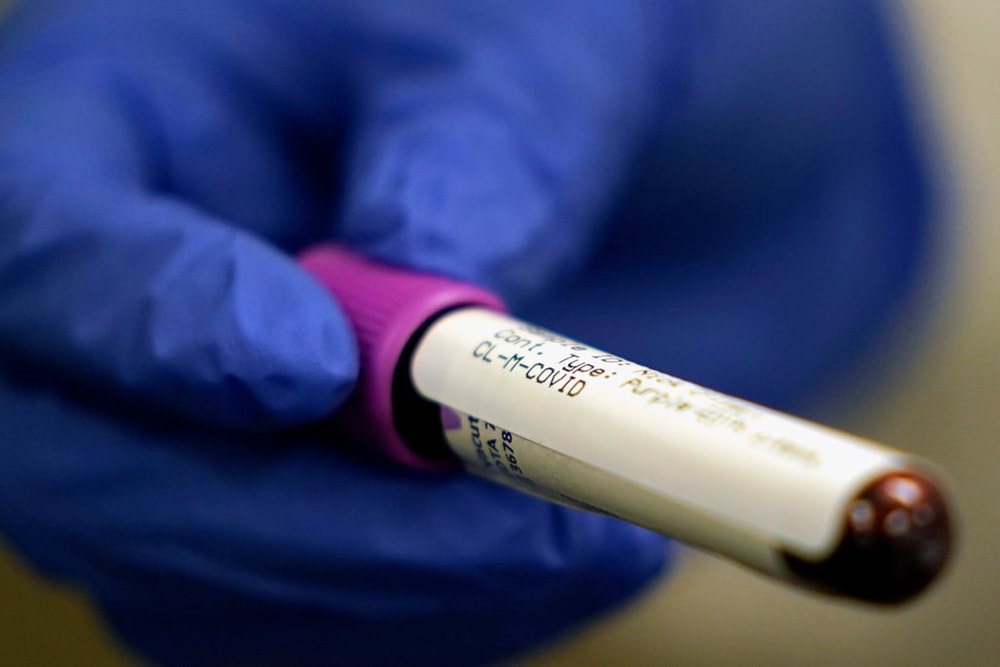 |
| The FDA said test kit manufacturers must submit quality assurance data within 10 days. Photo: AP |
The FDA tightened its rules last week to ensure the quality of antibody tests, requiring test developers to undergo regulatory review. The FDA also acknowledged that its previous policy had created opportunities for fraud.
The FDA's unprecedented rule has opened the door to questionable suppliers.
The FDA’s lax regulation, which was introduced on March 16, allows antibody test manufacturers to sell their products without having to share data with the agency for approval of accuracy and licensing. According to Reuters, this has created a loophole for businesses without medical expertise to “dip” into this “hot” market to aggressively advertise, find buyers, and increase production. The FDA’s unprecedented regulation has “opened the door” to questionable suppliers.
The FDA's move follows a report by more than 50 scientists that found that only three of the 14 antibody tests on the market were reliable, with the rest showing significant differences in quality. Antibody tests are expected by US government and health officials to be a key tool for widespread testing that will help determine when restrictions can be lifted, people can return to normal life and the economy can reopen.
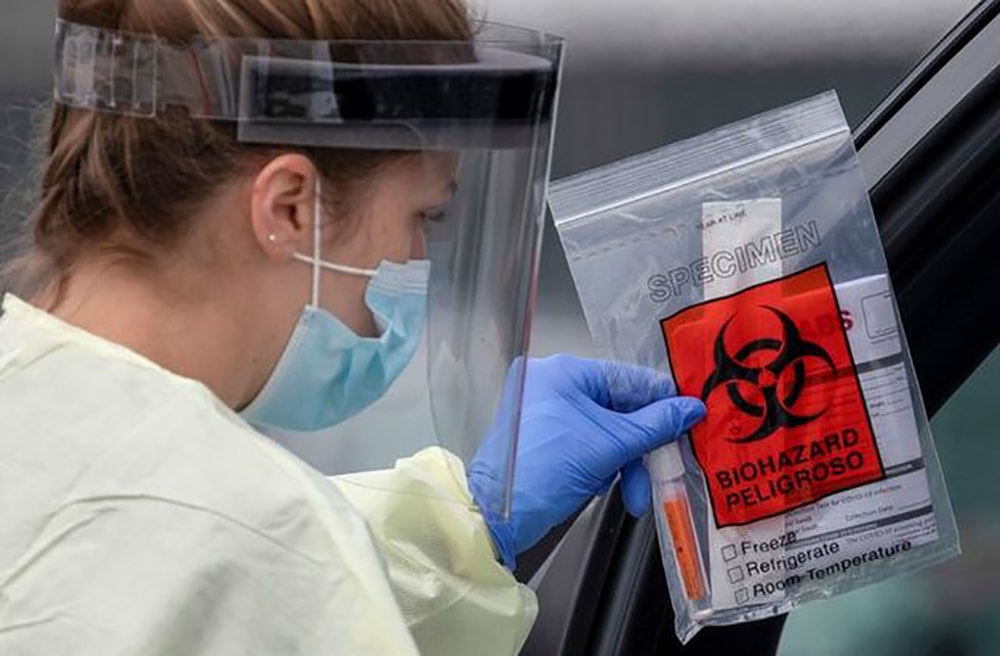 |
| Medical staff use rapid antibody test kits at a stadium in California. Photo: Reuters |
“Every step the FDA takes in the fight against Covid-19 is a balance of risks and benefits.”
Oversight of the development of test kits was disrupted early on when President Donald Trump called on the FDA to relax its rules. The agency was heavily criticized in late February for moving too slowly to license private companies to bring diagnostic tests to market. Now, the FDA faces regulatory responsibility for allowing manufacturers to distribute antibody tests too quickly without quality control. “Every step the FDA takes in the fight against Covid-19 is a balancing of risks and benefits,” said FDA Commissioner Stephen Hahn, Ph.D.
In a recent statement, the FDA said its original policy gave test manufacturers the flexibility to self-certify their quality, but “does not mean that fraud can occur.” “We have seen unscrupulous practices, offering fraudulent test kits, and exploiting the concerns of the American people,” the FDA said, adding that it has taken action to stop companies from marketing illegal test kits by seizing and rejecting test kits within the US borders.
Under the FDA’s new policy, commercial test manufacturers must submit data and apply for an emergency use authorization (EUA) within 10 days. The FDA said it will share information on its website with potential test purchasers, such as states and hospitals. The FDA is working with the National Institutes of Health and the Centers for Disease Control and Prevention to develop specific evaluation criteria for testing kits that are about to be released to the market, as well as those already in circulation.
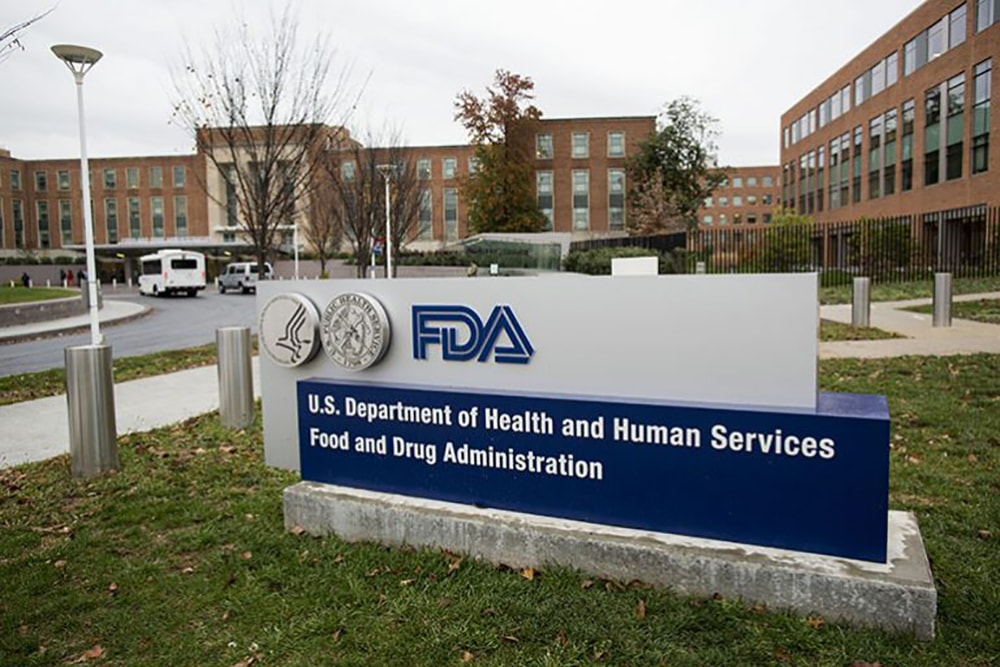 |
| US Food and Drug Administration. |
Scientific leadership
On May 6, German Chancellor Angela Merkel announced plans to partially lift the lockdown to prevent the spread of Covid-19, but remained cautious, closely monitoring the situation to ensure things did not get out of hand. Germany's response to the pandemic has received global praise, despite imposing the lightest restrictions in Europe. The reported numbers have proven the government's success.
While most other countries struggle, Germany has become a model for Covid-19 testing capabilities.
Germany is the 7th largest epidemic area in the world with more than 169,000 infections, but the number of deaths is only at more than 7,300, much lower than other epidemic areas in the continent and in the world. The number of new infections per day has also decreased since the beginning of April. Germany's health system is so good that hospitals can accept patients from neighboring countries. While most other countries struggle, Germany has become a model for Covid-19 testing capacity.
Germany has conducted more than 2 million tests, a rate of testing per population nearly double that of the United States. The German government is pushing to increase testing from nearly 900,000 to 4.5 million per week by mobilizing veterinary laboratories. Germany also has a dense network of hospitals and clinical laboratories. There are about 34 intensive care beds per 100,000 people, twice as many as in France and three times as many as in Britain and Italy. In addition, with a federal political system, the states in Germany have a lot of power to design their own epidemic containment measures, while the government plays a coordinating role.
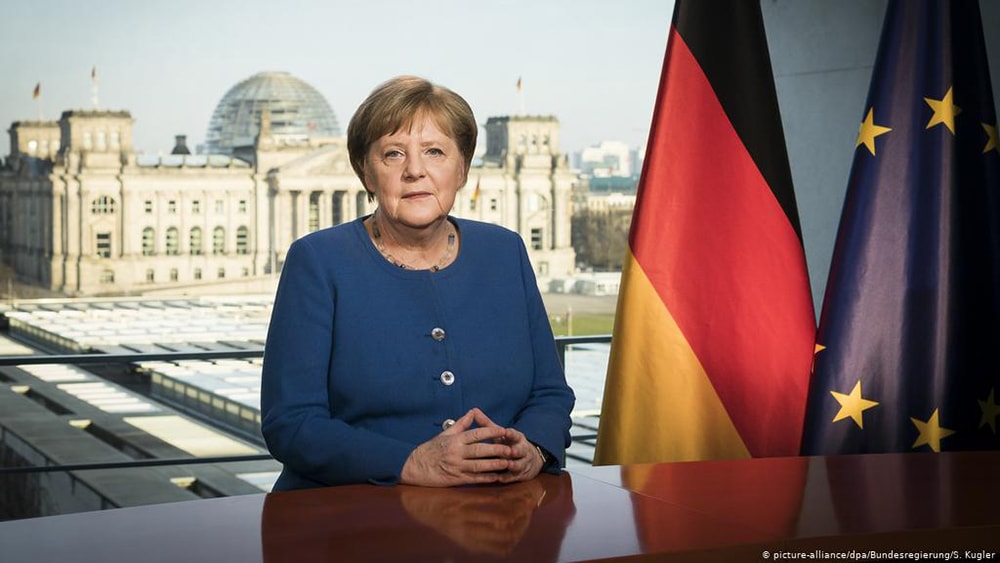 |
| Chancellor Angela Merkel speaks on national television about the Covid-19 epidemic. Photo: DW |
The comparison between Germany and other countries in the fight against the pandemic has also led to a surge in Chancellor Angela Merkel's approval rating, overshadowing all the remaining faces in the coalition government. Ivana Kottasova, a commentator for CNN, commented: "Merkel's legacy seems to have been saved. She is amazing. Every time there is a crisis, Merkel performs at her best."
Throughout her response to Covid-19, Chancellor Merkel has relied on expertise from well-funded scientific research organizations, including public health agencies like the Robert Koch Institute and the public university network. These organizations are working closely to establish a nationwide research system. The federal government, under Merkel, plays a convening role. The government recently brought together the country’s university medical departments into a Covid-19 task force.
Honesty plays an important role in convincing Germans to continue to follow the rules and stay calm amid confusing information flows.
Chancellor Merkel has publicly relied heavily on the expertise of a handful of experts. This honesty has been crucial in convincing Germans to continue following the rules and remaining calm amid the chaos of information. Gero Neugebauer, a prominent German political scientist, believes that Merkel’s scientific background has shaped her response to the crisis and helped boost her credibility.
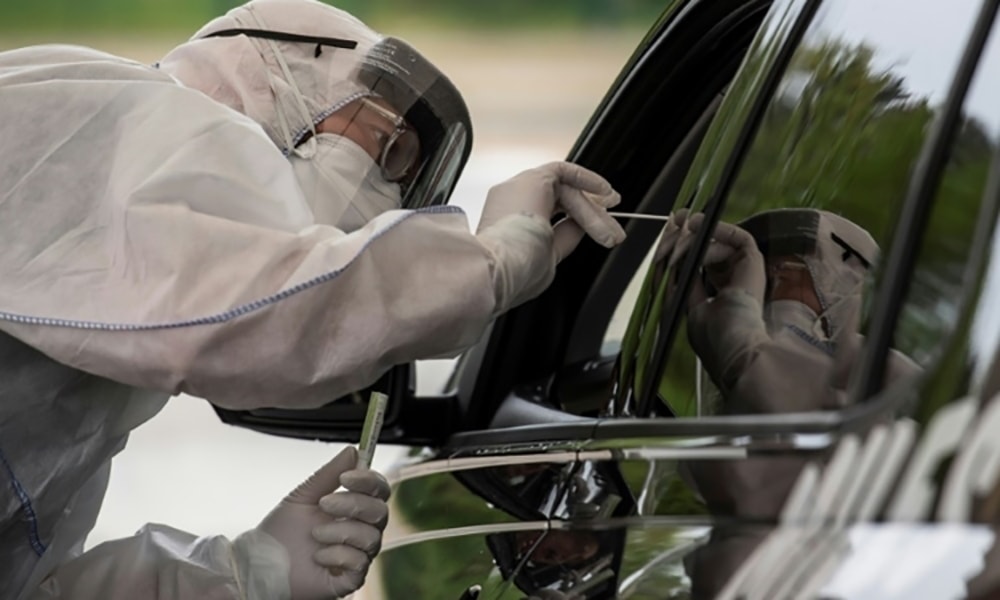 |
| Medical staff take samples for testing in Berlin in April. Photo: AFP |
Germany's fight against Covid-19 has been considered a success under the leadership of a female chancellor with 30 years of political experience, who comes from the scientific community. Although it is not clear what challenges lie ahead, as Ms. Merkel said: "The first phase of the epidemic is behind us, but we are still at the beginning and it will haunt us for a long time"; but observers believe that Chancellor Merkel will be remembered as a "chief scientist" - a leader based on science and leading the country out of the crisis.

